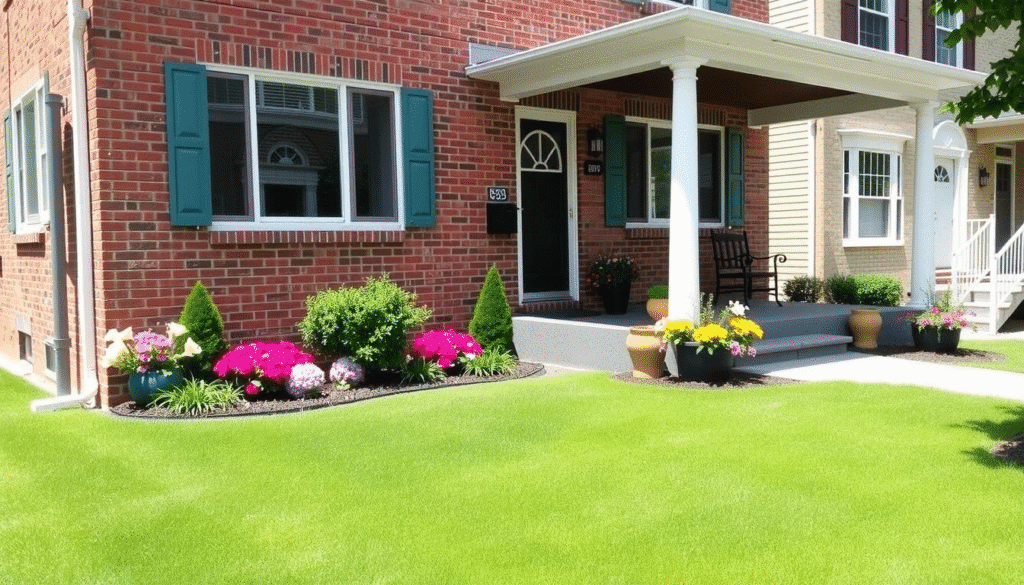1. Introduction: Investing in Passaic, NJ Real Estate
Passaic, New Jersey is often overlooked by investors in favor of more high-profile markets, but savvy real estate professionals are starting to take notice of this city’s untapped potential. Located in Passaic County and just a short drive or train ride from New York City, Passaic offers a unique combination of affordability, rental demand, and population density that makes it an ideal place to explore rental property investment.
The city is home to a diverse and growing population, many of whom rely on rental housing. With a median home price significantly lower than neighboring Bergen County cities and steady rent prices, Passaic is gaining traction among investors looking for long-term cash flow and appreciation opportunities.
In this guide, you’ll learn how to analyze whether a rental property in Passaic is a good investment by examining the financials, understanding the local market, and considering practical factors like property management, neighborhood dynamics, and compliance with local landlord laws. Let’s begin with understanding the basics of rental property investing.
2. Understanding Rental Property Investments
Rental property investing is the process of purchasing a residential or multi-family unit to lease out to tenants in exchange for consistent monthly income. It is one of the most reliable wealth-building strategies available to individuals because it offers three key benefits: predictable cash flow, asset appreciation, and significant tax advantages through deductions and depreciation.
However, not every rental property is a good investment. The profitability of your purchase depends on multiple variables, including purchase price, rental income potential, neighborhood quality, tenant demand, property condition, and financing structure.
Passaic is particularly appealing to rental investors for several reasons:
- High rental demand: Over 70% of residents in Passaic are renters, meaning there’s consistent tenant turnover and housing need.
- Urban infrastructure: The city is dense and walkable, with access to public transportation, local amenities, and major highways, all of which increase rental desirability.
- Comparatively lower purchase prices: Homes and multi-family buildings in Passaic are more affordable than those in adjacent markets like Paterson or Hackensack.
But before investing, it’s essential to evaluate whether the specific property you’re considering aligns with your financial goals—and that starts by looking at the numbers.
3. Key Metrics to Evaluate Rental Properties
Smart real estate investors use objective data—not gut instinct—to determine if a rental property is financially viable. The following metrics will give you a clearer picture of the property’s potential:
- Cash Flow: This is the amount of money you have left after all monthly expenses. It includes mortgage payments, insurance, taxes, property management fees, vacancy reserves, and maintenance. A property with strong, positive cash flow provides stability and passive income.
- Cap Rate (Capitalization Rate): This metric expresses the property’s return based on its income versus its value. For example, if a property generates $24,000 annually and was purchased for $400,000, the cap rate is 6%. In Passaic, cap rates between 5% and 7% are considered healthy and sustainable.
- GRM (Gross Rent Multiplier): GRM is calculated by dividing the property’s purchase price by its annual gross rental income. If a property costs $360,000 and earns $36,000 in rent, the GRM is 10. Lower GRMs typically signal better value.
- ROI (Return on Investment): ROI shows the percentage return based on your total cash investment (down payment, closing costs, rehab). This is key for assessing if your money is working hard enough for you.
These metrics don’t just help you evaluate one property—they allow you to compare multiple deals side-by-side to find the most financially promising opportunities in Passaic.
4. Analyzing the Passaic, NJ Real Estate Market
To determine whether your investment will thrive, you need to understand the dynamics of the local market. Passaic is a mid-sized city in northern New Jersey with a growing rental population, rising home values, and proximity to major job markets. According to recent market data:
- Median home price: ~$420,000 (as of early 2025)
- 2-bedroom apartment rents: $1,750–$2,200/month
- Rental occupancy rate: 94%+
- Population growth: Passaic continues to see modest growth, especially among working-class families and young professionals
The city has several distinct neighborhoods, each with its own tenant demographic and rent price ranges. Areas near Main Avenue, Monroe Street, and River Drive offer strong rental demand due to walkability, shopping centers, schools, and proximity to transportation hubs. Avoid areas with high crime or declining infrastructure, as these will negatively affect long-term tenant quality and appreciation.
Use tools like:
- Redfin for comps and property trends
- Rentometer for local rent estimates
- Zillow for price history and neighborhood data
Analyzing these trends will help you avoid overpaying and position your rental investment for long-term gains.
5. Calculating Return on Investment (ROI)
Return on Investment (ROI) is one of the most critical numbers to evaluate in real estate. It tells you how much profit you’ll earn compared to the money you invest out of pocket. The higher your ROI, the more efficient your investment.
ROI = (Annual Net Income / Total Cash Invested) × 100Let’s say you find a duplex in Passaic for $460,000. You put down 20% ($92,000), pay $8,000 in closing costs, and spend $10,000 on repairs. Your total cash investment is $110,000.
The units rent for $1,800 and $1,600 respectively, for a total of $3,400/month or $40,800 annually. After subtracting all expenses (mortgage, taxes, insurance, maintenance, etc.), your net income is $14,300/year.
ROI = ($14,300 / $110,000) × 100 = 13%This means for every dollar you’ve invested, you’re earning 13 cents back annually—before appreciation or tax benefits. That’s an excellent ROI, especially in a stable market like Passaic. Don’t forget, long-term wealth also comes from equity growth and depreciation tax sheltering, which further enhance your returns.
Tip: Run multiple ROI scenarios using conservative assumptions to protect yourself against unforeseen costs or vacancies. A good investment should still be profitable under realistic, even slightly pessimistic projections.
6. Assessing Cash Flow Potential
Cash flow is the most immediate measure of success for a rental property. It represents the money you keep each month after paying all operating expenses. Positive cash flow ensures your property supports itself and produces surplus income, rather than becoming a financial burden.
To calculate monthly cash flow:
Cash Flow = Total Rental Income - Total ExpensesLet’s say your Passaic duplex brings in $3,400 in gross monthly rent. Expenses include:
- Mortgage: $2,100
- Property taxes: $700
- Insurance: $150
- Repairs & vacancy reserve: $200
- Total Expenses: $3,150
Monthly Cash Flow: $3,400 – $3,150 = $250
That’s $3,000 in annual cash flow. While it may seem modest, this is income that increases over time as you raise rents, pay down the mortgage, and reduce costs. For new investors, even a small but steady positive cash flow is a good indicator that your investment is on track.
Note: Always plan for 5%–10% vacancy and at least 10% in annual maintenance reserves. Don’t underestimate small recurring costs like water bills, pest control, or snow removal—these add up fast, especially in an older housing stock like Passaic’s.
7. Evaluating Cap Rate and Gross Rent Multiplier (GRM)
Cap Rate and GRM are two quick tools for comparing the profitability of different rental properties. They offer useful snapshots before diving into deeper financial modeling.
Cap Rate
The capitalization rate tells you what percentage return the property generates based on its current value:
Cap Rate = (Net Operating Income / Purchase Price) × 100Example: If your annual net income is $24,000 and the property cost $400,000:
Cap Rate = ($24,000 / $400,000) × 100 = 6%A cap rate between 5% and 7% in Passaic is generally considered strong, reflecting a healthy return relative to risk. Higher cap rates can sometimes mean higher risk or property issues, so interpret in context.
Gross Rent Multiplier (GRM)
GRM is a quick screening metric:
GRM = Property Price / Annual Gross RentIf your $420,000 property brings in $40,800 per year in rent:
GRM = $420,000 / $40,800 ≈ 10.29In Passaic, a GRM between 9 and 12 is typical. A lower GRM usually means better value, but it doesn’t account for operating costs—so always pair it with a cash flow and cap rate analysis.
Investors often use GRM to shortlist properties and then use cap rate and ROI to evaluate the top candidates in detail.
8. Importance of Location and Neighborhood Analysis
Even the best property won’t perform well in a bad neighborhood. That’s why location is one of the most critical factors when assessing any rental investment in Passaic, NJ. Each area has different rent ceilings, tenant profiles, and appreciation trends.
Desirable traits for high-performing rental neighborhoods include:
- Proximity to public transportation (NJ Transit lines, bus routes)
- Walkability to shops, schools, and parks
- Low crime rates
- Well-maintained homes and clean streets
- Low tenant turnover and high demand
In Passaic, popular investor-friendly neighborhoods include:
- Downtown Passaic: High demand from working-class renters, near shops and transit lines
- East Passaic: Offers larger homes and quiet, family-friendly streets
- River Drive Area: Emerging zone with walkable parks and water views
Use tools like Google Maps, NeighborhoodScout, and local Facebook groups to get a feel for the area before investing. Also, speak to current tenants and landlords—local insight is invaluable when evaluating a specific block or street.
9. Understanding Local Regulations and Taxes
Investing in rental property in Passaic also means complying with local laws and budgeting for municipal fees and taxes. Failure to follow the city’s landlord-tenant rules can result in fines—or worse, legal action from tenants.
Key Landlord Regulations in Passaic:
- Rental Property Registration: All rental properties must be registered with the city. This often includes fees and periodic renewals.
- Certificate of Occupancy (CO): Required before leasing any unit. It confirms compliance with zoning, health, and building codes.
- Lead Paint Disclosure: Required for properties built before 1978. Many homes in Passaic fall into this category.
- Inspection Requirements: The city may require an inspection prior to each new lease term or annually.
Taxes:
Passaic property taxes vary by neighborhood but typically range between $9,000 and $13,000 annually for multifamily properties. These taxes can significantly impact your cash flow, so be sure to verify rates on the city’s tax assessor website before purchase.
Additionally, make sure to budget for:
- Garbage and sewer fees
- Municipal rental licensing fees (if applicable)
- Legal costs for lease enforcement or eviction
Tip: Hiring a local property management company that understands Passaic’s rental ordinances can help you stay compliant and protect your investment.
10. Financing Options for Rental Properties
Your financing strategy can dramatically affect your investment returns. Choosing the right loan type can optimize your monthly payments and allow you to scale your portfolio faster. In Passaic, investors typically choose from the following options:
Conventional Loans
These are offered by traditional banks and require 20%–25% down for investment properties. They offer competitive interest rates but may have stricter credit and income requirements.
FHA Loans (for House Hacking)
If you plan to live in one unit and rent the others (e.g., in a duplex or triplex), FHA loans allow for as little as 3.5% down. This is a great option for first-time investors living in Passaic.
Portfolio Loans
Provided by credit unions or smaller banks, these loans are not sold on the secondary market. They are more flexible and can be based on property performance instead of personal income alone.
Hard Money Loans
Short-term, high-interest loans used for flips or fast purchases. While riskier, they can be useful in competitive bidding situations or for distressed properties needing renovation before renting.
Tip: Shop around with local Passaic lenders—many smaller banks understand the market and may offer more favorable terms than national institutions.
11. Property Management Considerations
Managing a rental property in Passaic can be rewarding, but it’s also time-consuming. From tenant communication and rent collection to maintenance coordination and city inspections, the daily responsibilities can add up—especially if you own multiple units or don’t live nearby.
Should You Self-Manage or Hire a Property Manager?
If you’re local, experienced, and have time, self-management can save 8–10% in monthly fees. However, hiring a professional property management company can reduce stress, increase tenant satisfaction, and ensure compliance with local laws.
Services a Property Manager Can Provide:
- Marketing and advertising vacant units
- Tenant screening and lease creation
- Rent collection and financial reporting
- Handling maintenance and emergency repairs
- Managing evictions and legal notices
In Passaic, property management fees typically range from 8% to 12% of monthly rent, with additional costs for leasing or project management. This can be well worth it, especially if you want to scale your portfolio or keep your role passive.
Tip: Interview multiple managers before choosing one. Ask about their local experience, tenant retention rate, and ability to handle city inspections and compliance matters.
12. Risks and Challenges in Rental Property Investment
Even in promising markets like Passaic, NJ, rental property investment comes with inherent risks. Being prepared for potential challenges can mean the difference between steady profits and financial setbacks. Below are the most common risks investors face and how to mitigate them:
- Tenant Risk: Late payments, non-payment, or property damage can reduce your income and lead to costly evictions. Perform thorough tenant screening and use solid lease agreements.
- Vacancy Risk: A vacant property generates no income but continues to rack up expenses. Keep your units well-maintained and priced competitively to avoid prolonged vacancies.
- Unexpected Repairs: Older homes in Passaic may require roof replacements, HVAC upgrades, or plumbing fixes. Maintain a capital reserve fund of at least 10% of your annual rent.
- Regulatory Changes: New laws could limit rent increases, require additional inspections, or increase landlord liability. Stay updated with local ordinances and legal guidance.
- Market Risk: Economic shifts or oversupply could reduce rent prices or slow appreciation. Diversify your portfolio and don’t over-leverage.
Every investment carries risk, but the key to successful real estate investing is preparation, due diligence, and professional support. When properly managed, Passaic rental properties can be a stable source of cash flow and long-term wealth.
13. Case Study: Successful Rental Investments in Passaic
Let’s look at a real-world example to illustrate how smart investing in Passaic pays off.
Investor Profile: Sarah, a first-time investor based in Jersey City, purchased a 3-family home in Passaic’s Eastside for $480,000. She used a conventional loan with 20% down ($96,000) and invested an additional $14,000 in updates.
Rent Roll:
- Unit 1: $1,750/month
- Unit 2: $1,650/month
- Unit 3: $1,400/month
- Total Gross Income: $4,800/month
Monthly Expenses: $3,200 (includes mortgage, taxes, insurance, property manager, and reserves)
Monthly Net Cash Flow: $1,600
Annual Net Income: $19,200
ROI: ($19,200 / $110,000) × 100 = 17.45%
Sarah’s property appreciated by 9% in the first 18 months. By buying in a solid neighborhood and hiring a local property manager, she avoided costly mistakes and enjoyed passive income while planning her next acquisition.
14. Frequently Asked Questions (FAQs)
Is Passaic, NJ a good place to invest in rental property?
Yes. With a strong renter population, affordable purchase prices, and consistent demand, Passaic offers solid cash flow and long-term potential.
What’s a good ROI for a rental property in Passaic?
Most successful investors aim for a minimum of 8–10% ROI in Passaic. Anything above 12% is considered strong, depending on risk and property condition.
What type of property is best to invest in Passaic?
Multifamily properties like duplexes and triplexes offer better cash flow and scalability. Single-family homes may appreciate faster but often yield lower monthly income.
Are there landlord-friendly laws in Passaic?
Passaic has moderate landlord-tenant laws. As long as you follow registration, inspection, and disclosure requirements, most landlords operate smoothly.
Should I manage the property myself or hire help?
If you live nearby and have time, self-management may work. Otherwise, hiring a property manager in Passaic can improve efficiency, compliance, and tenant retention.
15. Conclusion: Making Informed Investment Decisions
Investing in rental property in Passaic, NJ can be a financially rewarding venture when approached with research, strategy, and patience. The city offers favorable conditions for both new and seasoned investors—including solid cash flow potential, reasonable home prices, and an ever-present demand for rental housing.
By evaluating critical metrics like ROI, cash flow, cap rate, and neighborhood desirability—and by understanding Passaic’s local regulations and market trends—you can make smart, data-driven decisions that protect and grow your wealth.
Whether you plan to manage the property yourself or work with a professional team, success starts with informed action. The tools, examples, and frameworks shared in this article are designed to give you a blueprint for profitable rental investing in Passaic and similar markets.
16. Next Steps and Resources for Investors
Ready to get started or scale your rental portfolio? Here are your next action steps:
- Step 1: Identify a target neighborhood in Passaic using tools like Zillow, Rentometer, and Google Maps.
- Step 2: Connect with local real estate agents and lenders familiar with investment properties.
- Step 3: Use rental calculators to analyze deals and model different scenarios.
- Step 4: Consult a Passaic property management company to estimate costs and compliance requirements.
- Step 5: Join local investor groups or forums to learn from others’ experience.
Recommended Tools & Resources:
- Rentometer – For local rent estimates
- Zillow – For market analysis and property search
- RentShield Property Management – For local property management support
- City of Passaic – For landlord registration and tax details
Need help evaluating a deal or managing a property? Contact our team at RentShield Property Management for a free consultation. We help landlords throughout Passaic County maximize rental income and reduce stress.






